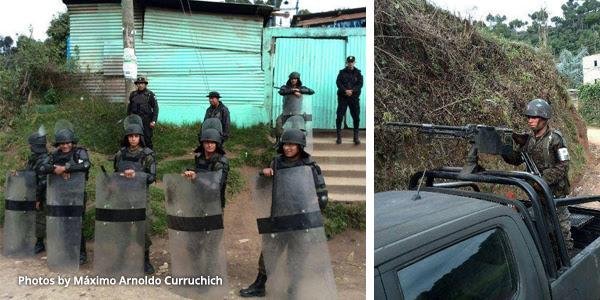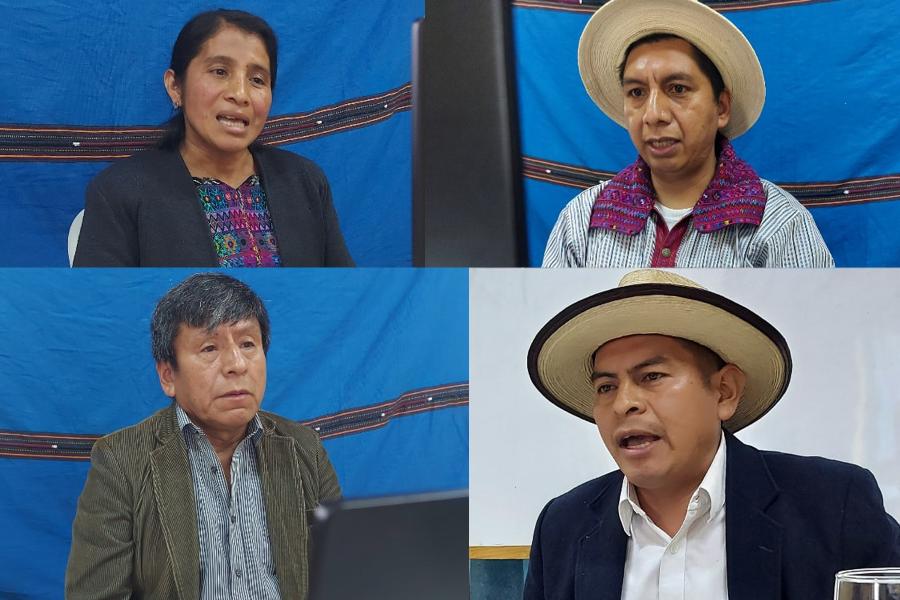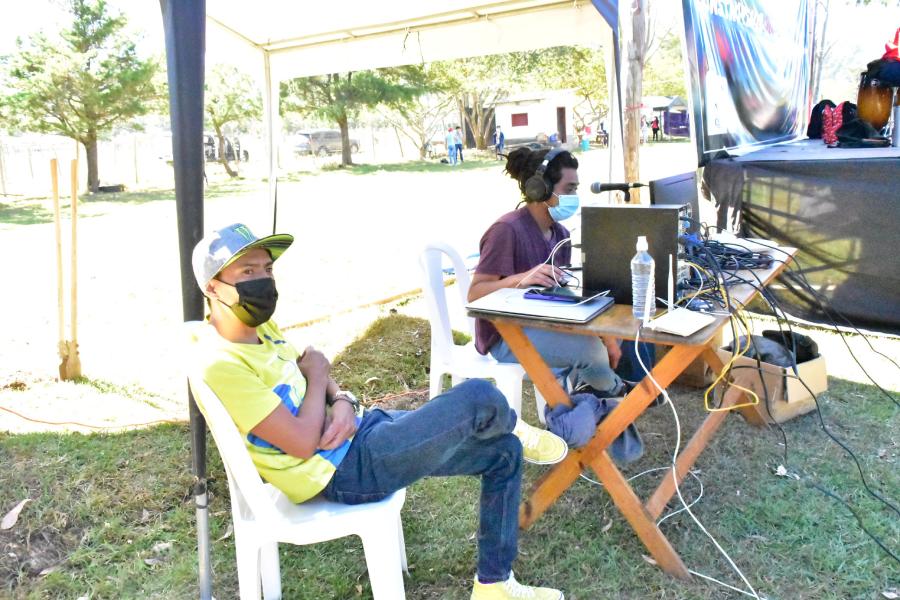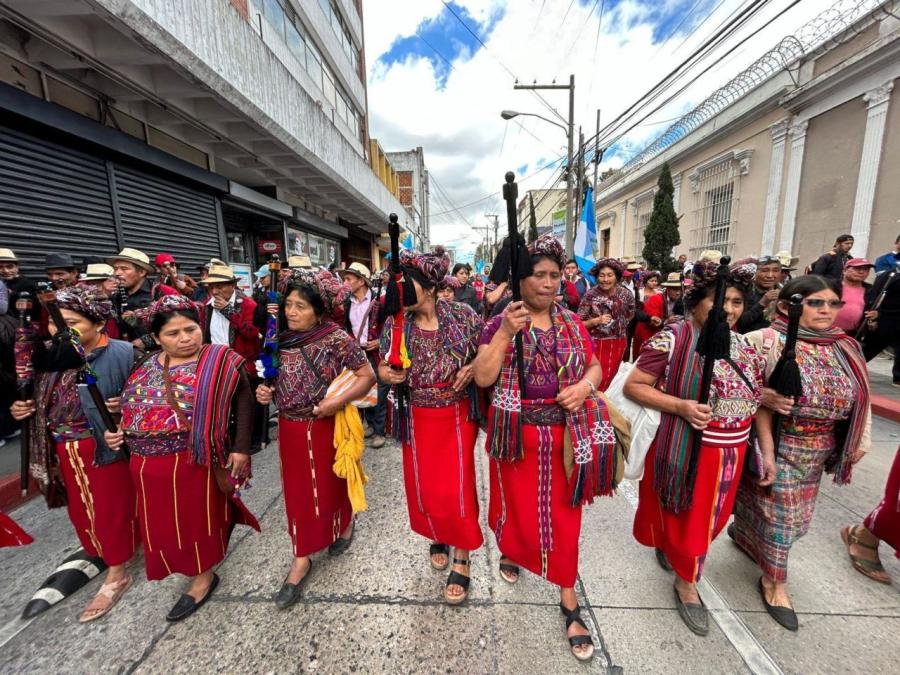
By Guatemalan Human Rights Commission (GHRC)
A declaration of a “State of Prevention” in the municipality of San Juan Sacatepéquez was declared on September 25, 2014, allegedly in response to acts of violence committed in the community of Los Pajoques on the 19th and 20th of September. Despite the localized nature of the conflict, the administration of President Otto Pérez Molina made the controversial decision to suspend basic constitutional rights, such as freedom of speech and assembly, throughout the entire municipality for the next 15 days.
Los Pajoques is one of twelve communities in San Juan Sacatepéquez that have been involved in an ongoing resistance movement to the construction of a cement quarry and processing plant, and recently have opposed the construction of a highway that would cut through the community on its way to the quarry. Their opposition is grounded in concerns about the profound impact that the operations of the cement factory could have on the environment, in an area renown for the cultivation of vegetables and flowers.
The violence, which reportedly left 11 dead, was a tragic manifestation of the division, tension and desperation that has existed in San Juan Sacatepéquez since the arrival of the powerful cement company, Cementos Progreso, in 2006.
As a result of the implementation of the State of Exception, almost 1000 police officers and a similar number of soldiers were deployed to San Juan in the early morning hours of September 24th to carry out 36 arrest warrants. The massive deployment of heavily armed police and military, as well pickups with mounted machine guns and an army tank, have caused fear and anxiety in these rural indigenous communities. GHRC has also received reports that security forces have destroyed private property and removed personal documents while conducting warrantless searches of houses.
Community members lament this latest incident of violence and its tragic toll. But they affirm that much of the violence could have been avoided if the police had responded to their repeated, urgent calls for assistance. According to the Human Rights Convergence, a coalition of Guatemalan human rights organizations, this incident and the State’s response reflects a "pattern of inciting violence with the intention of sparking conflict in order to justify repressive action.” The Convergence points out that in Los Pajoques, as in several recent cases, authorities did not wait for an investigation before publicly blaming violence on organizations that are actively defending their rights to land and territory.
In recent years, the government of Guatemala has increasingly relied on military intervention and declarations of martial law in responding to the growing opposition to resource extraction projects. A previous state of prevention was declared in San Juan Sacatepéquez in 2008 with similar justification. In 2012, a state of siege was declared in Santa Cruz Barillas, where communities strongly oppose a hydroelectric dam project. In 2013, a state of exception was declared in San Rafael las Flores and other municipalities resisting the installation of a large silver mine.
GHRC expresses solidarity for the families of those killed in Los Pajoques, and calls for investigation into their deaths, as well an investigation into the lack of an adequate and timely response by the police. We denounce the use of the military to arrest suspects or search houses -- acts which should only be carried out by the police with warrants, respecting applicable civil liberties. GHRC also condemns the disproportionate response by the Guatemalan government and the use of a “State of Prevention” to militarize and suspend constitutional guarantees in the entire municipality of San Juan Sacatepéquez.



